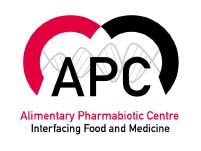2011 Press Releases
25.05.2011
Do you suffer from Irritable Bowel Syndrome (IBS)? If so, the Alimentary Pharmabiotic Centre (APC) at UCC invites you to a Public Forum on June 1st. The aim of this Forum is to increase awareness about IBS and provide up-to-date information for patients and their families on living with this condition. The event takes place in Lecture Theatre G01, Brookfield Health Sciences Complex, College Road, Cork from 7.00-8.30pm.
The forum will be chaired by Professor Eamonn Quigley, Professor of Medicine at UCC, Consultant Gastroenterologist at Cork University Hospital (CUH) and Principal Investigator at the APC. Professor Quigley and his colleagues, Professor Colin Hill, UCC and Dr Orla Craig, CUH, will each give presentations followed by a question and answer session with the audience
Professor Quigley, in his talk titled “Post-infectious IBS; what is it and who gets it?” will speak about Post-infectious IBS, which is IBS that develops following an outbreak of food-poisoning or water-borne infections. In recent years, careful follow-up of large numbers of people following community outbreaks of gut infections has clearly defined the existence of post-infectious irritable bowel syndrome (PI-IBS). About 10% of people who have an episode of gastroenteritis will go on to develop PI-IBS and if the outbreak has been very severe this number may reach as high as 33%! Research exploring the pathology, genetics and immunology of this entity has thrown new light on IBS, in general and may open new therapeutic avenues.Professor Colin Hill will discuss the concept of using beneficial bacteria to fight infection in the developing world. Infectious disease continues to claim the lives of almost 10 million children every year, many of them from the scourge of diarrhoea. In addition to these deaths, diarrhoea and malnutrition create a deadly cycle of infectious disease which has lifelong consequences for the survivors in terms of life expectancy, intellectual capacity and even adult stature and work productivity. Using beneficial bacteria (often marketed as probiotics) to fight infection in the developing world is a novel strategy that might provide an economically viable, long-term strategy to break the disease cycle and improve the health and quality of life of some of the world’s most disadvantaged populations. Professor Hill will use examples of research conducted in the Alimentary Pharmabiotic Centre in Cork to indicate the potential of this novel approach.
Dr Orla Craig’s talk “IBS, food and stress: new insights, new approaches” will focus on the influence of the brain on IBS symptoms and new therapies directed at this brain-gut link. She will also discuss which foods are likely to help or exacerbate IBS symptoms and try to dispel some of the myths surrounding food and IBS.
About
the Alimentary Pharmabiotic Centre
The
Alimentary Pharmabiotic Centre, (APC; http://apc.ucc.ie
) is a research centre funded by Science Foundation Ireland and industry
partners. The APC, a partnership between University College Cork,
Teagasc, the Irish Agriculture and Food Development
Authority, and the Cork Institute of Technology, focuses on research in
gastrointestinal health. Pharmabiotic is a neologism devised by the APC
to represent any material (including molecules and microbes) originating from
the gut ecosystem that can be exploited for a health benefit, and includes
probiotics, prebiotics, metabolites, and potential new anti-microbials and
anti-inflammatories. The independent
international ratings agency Thomson Reuters Science Watch global analysis, recently ranked University College Cork at number 2 in the world for probiotics
research, due primarily to publications from researchers in the Alimentary
Pharmabiotic Centre (http://sciencewatch.com/ana/st/probiotics/institution/)

